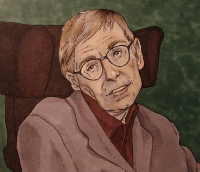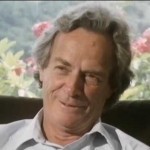Sermon: Love as the Starting and Ending Place (Elaine Shank 01-29-2012) back
How many of you have ever received some advice?
Some advice you didn’t ask for? Unwanted advice?
Who’s been asked a question they didn’t know how to answer? Think of a time you gave a really wrong answer…
Sought an answer to a question but didn’t get the answer you wanted? A lot of knowledge instead, or an answer that was really wrong.
 How many of you have some questions that you still haven’t gotten answered?
How many of you have some questions that you still haven’t gotten answered?
Isn’t it funny that with all the advice and information out there that people are eager to give us, we each still need a few more answers. There are several questions I keep looking for answers to: Why does that woman at the laundromat who’s younger than I am suffer from a mental illness, and I don’t? Why do I get enough to eat everyday, and a warm place to sleep? On the other hand, with all that, why haven’t I gotten what I wanted in life? I know there are answers to these questions. You could tell me some facts to give me some reasons for these realities. but none of them will really be an answer for me.
The church in Corinth had what seemed like a simple question to ask Paul: What about food offered to idols? Are we supposed to eat it, or not? All we need is one answer, Paul, yes or no, right or wrong. Some of us are just going right ahead, we don’t believe there are any demonic forces lingering in that meat, it’s all a bunch of superstitious hooey, and staying away from all the feasts of our non-Christian friends where they serve meat to a god is really narrowing our mission focus. We know God’s in charge and it’s no big deal what we eat, and we should get out there into the world and share the really important news about Jesus with them.
 But then there are others of us who just want to follow every last rule, including “don’t eat meat that’s been offered to idols” because it dishonors God and the Jewish tradition. Well, there’s no way of telling where most of the meat comes from – most of it’s been recycled from some offering to an idol in another part of town, so we have to go through this nitpicky, laborious process of tracking down the origins of every chicken before we can eat a mouthful, according to that idea. And how can you do that politely at a friends’ house? Are you going to demand to know whether it’s organic, free-range, hormone- and idolatry-free, and then say, “wouldn’t you like to follow Jesus too?” So settle this for us, Paul. Give us an answer.
But then there are others of us who just want to follow every last rule, including “don’t eat meat that’s been offered to idols” because it dishonors God and the Jewish tradition. Well, there’s no way of telling where most of the meat comes from – most of it’s been recycled from some offering to an idol in another part of town, so we have to go through this nitpicky, laborious process of tracking down the origins of every chicken before we can eat a mouthful, according to that idea. And how can you do that politely at a friends’ house? Are you going to demand to know whether it’s organic, free-range, hormone- and idolatry-free, and then say, “wouldn’t you like to follow Jesus too?” So settle this for us, Paul. Give us an answer.
Paul offers this for an answer:
Those who think they know something really don’t know yet as they ought to know. But the person who loves God is known by God.
That Paul – always raising the bar.
Amassing some knowledge can seem like a very reasonable way to find some answers. (Who else besides me likes to do that?)
One pursuit of knowledge that I’ve followed to some degree in past years has been the advances of theoretical physicists. Actually I’m a lot more interested in the personalities of the physicists than in the physics. These scientists have discovered the way so many things in the universe seem to work, from the subatomic level to the cosmic level, and every discovery fuels a quest for more answers. But there are ways and there are ways to look.
In A Brief History of Time, Stephen Hawking asks: "We want to make sense of what we see around us and to ask: What is the nature of the universe? What is our place in it and where did it and we come from? Why is it the way it is?" I can relate to all those questions, so I skipped to the end. He poses questions even more excitedly in the last chapters: "Why does the universe go to all the bother of existing? Is the [still undiscovered] Grand Unified Theory so compelling that it brings about its own existence? Or does it need a creator, and, if so, does the creator have any other effect on the universe? And who created him?” he demands. 
“We must beware of overconfidence,” he cautions, but “I still believe there are grounds for…optimism that we may now be near the end of the search for the ultimate laws of nature.” Well, sounds like that’s that, then. But there’s more! “What would it mean if we actually did discover the ultimate theory of the universe?...A complete, consistent, unified theory is only the first step: Our goal is a complete understanding of the events around us, and of our own existence….Then we shall all be able to take part in the discussion of the question of why it is that we and the universe exist. If we find the answer to that, it would be the ultimate triumph of human reason – for then we would know the mind of God.”
Okay. That’s one way to look for answers.
Richard Feynman is another theoretical physicist who spent a lifetime in a pursuit of knowledge. He put forth a unifying theory of quantum electrodynamics that advanced physics to a new level in the fifties. But he worked on problems in widely diverse fields of physics and even biology, and it was said of him, “No other physicist since Einstein so ecumenically accepted the challenge of all nature’s riddles.” He was considered a genius by his merely brilliant peers.
It’s Feynman’s approach to the mysteries of the universe  that makes me think of him as a modern saint, someone who draws me into the presence of God. He had a voracious appetite for knowledge, but even at his rapid rate of consumption, he knew there was much he could not know. Near the end of his life he could say,
that makes me think of him as a modern saint, someone who draws me into the presence of God. He had a voracious appetite for knowledge, but even at his rapid rate of consumption, he knew there was much he could not know. Near the end of his life he could say,
I can live with doubt and uncertainty and not knowing. I think it’s much more interesting to live not knowing than to have answers which might be wrong. I have approximate answers and possible beliefs and different degrees of certainty about different things; but I’m not absolutely sure of anything and there are many things I don’t know anything about, such as whether it means anything to ask why we’re here…I don’t have to know an answer to that. I don’t feel frightened by not knowing things, by being lost in a mysterious universe without any purpose, which is the way it really is as far as I can tell.
I wonder if people who study the facts of the physical universe very deeply often conclude this. About grand unification theories he ranged from skepticism to anger: “It’s useless to talk about these things! The history of unifying theories is nonsense! You’re trying to make something difficult and complicated out of something that’s simple and beautiful!” He didn’t ask “why” questions about the early death of his beloved wife, instead saying, “If you accept reality and take it into your heart, you don’t have those questions about why me and not this other guy.”
 He urged prospective students to abandon physics if it was an avenue to prestige, and instead only to study it if they found the mysteries of daily life interesting – if they wanted to know why the clouds formed that pattern, or why the sheen of gasoline lay on the puddle, or how a plate wobbled as it spun in midair. He was an avowed atheist, on his deathbed asserting acrimoniously that he knew there was no God. “We shouldn’t worship mysteries. Mysteries are wonderful because maybe you can solve them.” But this was all of a piece with his true religion: When W.H. Auden asked in a poem what physicists want the knowledge for, Feynman tried to answer: “We want it…for the emotions of awe, wonder, delight and love which are evoked upon learning Nature’s ways in the animate and inanimate world, together (for they are one)….We want it so that we can love Nature more.”
He urged prospective students to abandon physics if it was an avenue to prestige, and instead only to study it if they found the mysteries of daily life interesting – if they wanted to know why the clouds formed that pattern, or why the sheen of gasoline lay on the puddle, or how a plate wobbled as it spun in midair. He was an avowed atheist, on his deathbed asserting acrimoniously that he knew there was no God. “We shouldn’t worship mysteries. Mysteries are wonderful because maybe you can solve them.” But this was all of a piece with his true religion: When W.H. Auden asked in a poem what physicists want the knowledge for, Feynman tried to answer: “We want it…for the emotions of awe, wonder, delight and love which are evoked upon learning Nature’s ways in the animate and inanimate world, together (for they are one)….We want it so that we can love Nature more.”
The person who loves God is known by God.
What I love about this verse is that it reminds us where true knowledge resides. It’s not in our systems of thought and belief. We’re actually drawing all our knowledge of the universe and how it works from a mainframe somewhere else, through cables of love. The final place to rest is: If we love, we are known; we are part of that larger universe, the immense field of love.
Some of the Corinthian Christians were giving unwanted advice to others based on their knowledge of God: Nothing evil dwells in that meat, no matter where it’s been and how it’s been killed, and you’re being overly scrupulous to avoid it. Get over it! But Paul’s thought is, that’s not your responsibility – to educate your brother or sister, to load them up with all the knowledge you have. Instead, it’s to hold them in love in all the ways you can think of.
How many of us have believed that our knowledge would help another person out, as they struggle to understand something? If only they knew this, they’d sort of …reform themselves, or at the very least, be better off! It’s a kind of missionary enterprise, let’s give some people some answers!
Some answers really are timely and useful to people. If you need to know how to get to the bathroom in this building, everyone here could help you out. If you want to understand the theory of relativity, you could probably get some help with that from someone here, too. If you’re asking why God let a loved one die, you might want an answer – but not from any of us. There are different kinds of questions.
In the Epiphany season we’re offered the idea that this is the answer we’ve been looking for.  This is the One, the one who answers all our hopes, the hopes and fears of all the years. This week’s scriptures seem to me to be about knowing some answers, getting some answers, finally. Here’s someone who knows something. This is the one Moses spoke about, the one who is coming to tell us the truth. He’s marvelous!
This is the One, the one who answers all our hopes, the hopes and fears of all the years. This week’s scriptures seem to me to be about knowing some answers, getting some answers, finally. Here’s someone who knows something. This is the one Moses spoke about, the one who is coming to tell us the truth. He’s marvelous!
If He knows all these answers, why can’t I access them? If He knows why people suffer, why doesn’t he tell me? Why is there so much knowledge that I just can’t get – not just about the universe, but about myself?
Paul brushes aside the importance of our own knowledge.
He says the real starting place (and ending place) with God is not knowledge, but love.
Amen.
Sermon by Elaine Shank
Dayspring Church
1/29/2012